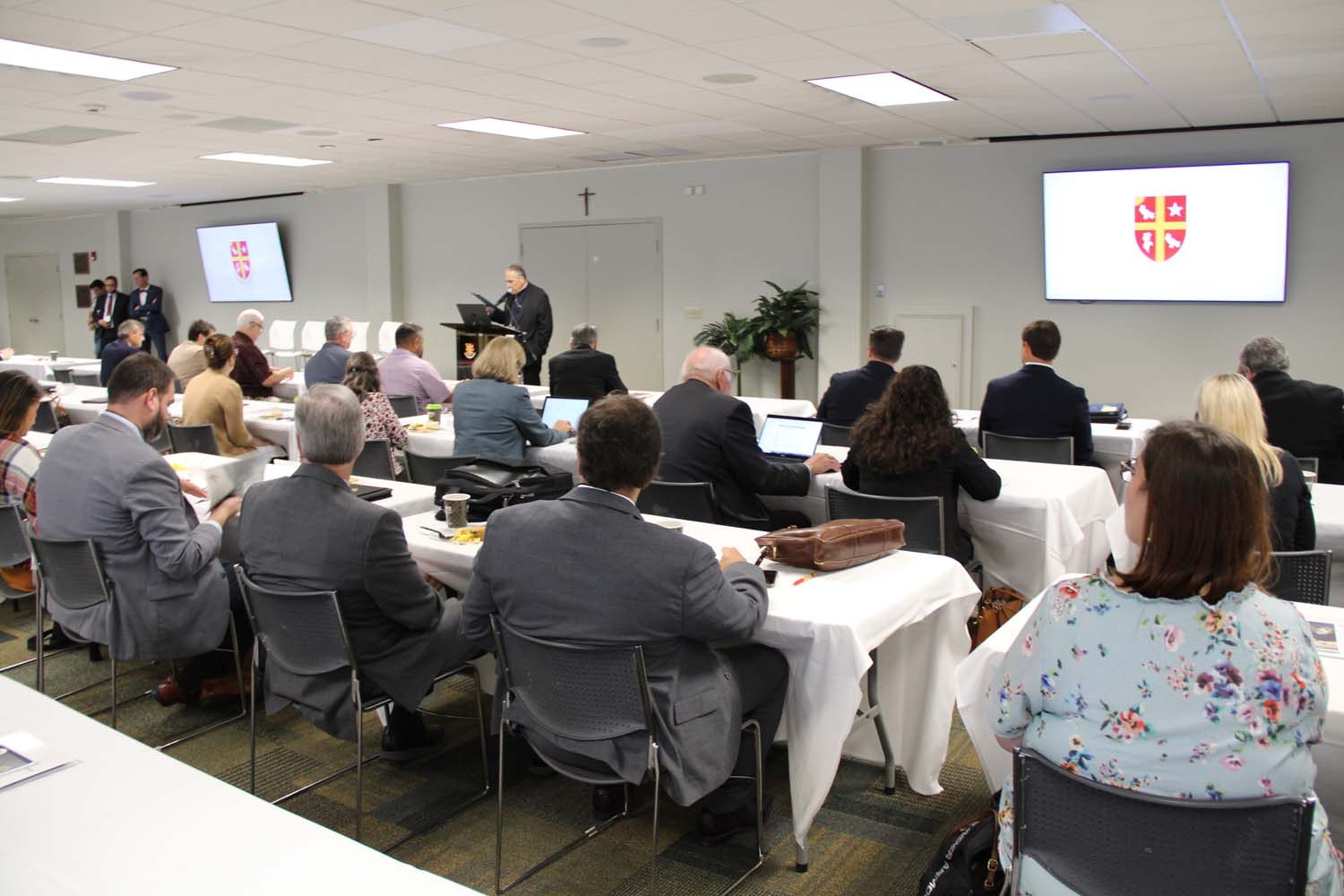A Catholic’s preview of the upcoming Texas state legislative session
September 27, 2022
Texas bishops, including Daniel Cardinal DiNardo, Archbishop of Galveston-Houston, and other church officials met at the University of St. Thomas in Houston for a regional gathering ahead of the upcoming Texas state legislative session. (Photo by Jonah Dycus/Herald)
AUSTIN — We have had a very busy summer at the Texas Catholic Conference of Bishops (TCCB). Now that Labor Day has passed us, we are officially looking forward to fall and gearing up for the 88th Texas Legislative Session in Austin.
Tuesday, Nov. 8, is Election Day and Monday, Nov. 14, is the first day legislators and legislators-elect may start filing bills.
A top priority for us for next session is parental choice. As our Catholic schools welcome new and returning students for the 22-23 academic year, we are cognizant not everyone who desires a Catholic education for their child can afford one.
Parental choice in education is an important element of Church teaching. The Catechism of the Catholic Church states, “As those first responsible for the education of their children, parents have the right to choose a school for them which corresponds to their own convictions. This right is fundamental. As far as possible parents have the duty of choosing schools that will best help them in their task as Christian educators. Public authorities have the duty of guaranteeing this parental right and of ensuring the concrete conditions for its exercise.” (CCC 2229)
In Amoris Laetitia, Pope Francis writes, “Parents themselves enjoy the right to choose freely the kind of education – accessible and of good quality – which they wish to give their children in accordance with their convictions.”
As the primary and principal educators of their children, parents must be free to determine the best educational environment for their children, whether that be public, charter, private, or homeschool. Their choices should not be limited by family income or zip code. The bishops support parental choice programs, especially for the poor and children with special needs, to increase access to quality education options for all students.
We support legislation that establishes Education Savings Accounts (ESA) or scholarships that include the following provisions:
- Funding for tuition and fees, textbooks, curricula, academic assessments or post-secondary entrance exams, tutoring, and therapy.
- Funding sources could include state revenue, private philanthropy, and state tax credits.
- Financial accountability using random audits of ESAs by a third party.
- Academic accountability by administration of a norm- or criterion-referenced assessment each year (current practice at accredited schools).
- Preferential option for the poor by ensuring students with the greatest academic and financial need are prioritized.
- Homeschool families can voluntarily participate. Any who do not want to accept it are free to continue to homeschool in any manner they choose.
- Safeguards and protections for the privacy, autonomy and religious freedom of participants by ensuring that educators are not required to modify their creed, practices, admissions policies, curriculum, performance standards, or assessments to serve ESA students.
While most students will continue to benefit from thriving public schools, parental choice programs provide hope for the thousands of families who need better access to personalized educational options.
After the election, readers are encouraged to contact their representatives and ask them to support parental choice in education.
Jennifer Allmon is the executive director of the Texas Catholic Conference of Bishops, the association of the Roman Catholic bishops of Texas which represents 15 dioceses and 19 active bishops. Through the TCCB, the bishops provide a moral and social public policy voice, accredit the state’s Catholic schools, and maintain archives that reflect the work and the history of the Catholic Church in Texas.


